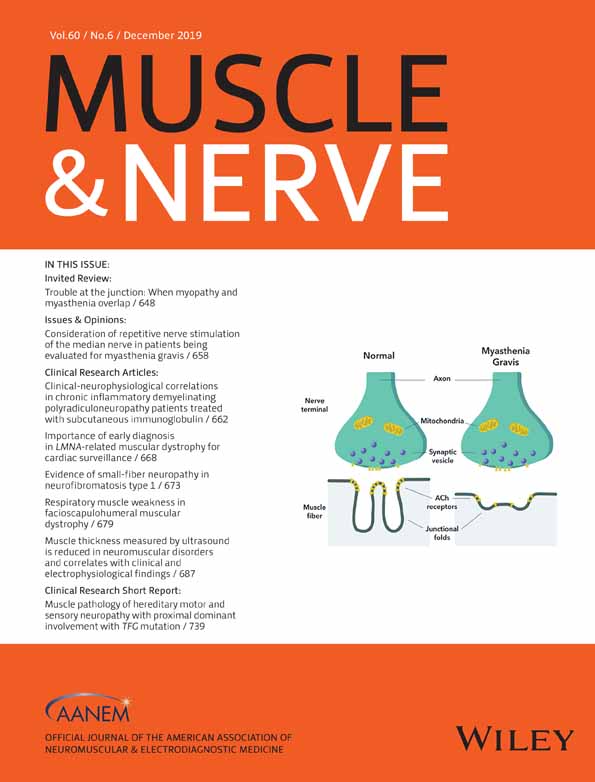Patient-reported disease burden in oculopharyngeal muscular dystrophy
Funding information: Fonds de Recherche du Québec - Santé, Grant/Award Number: 31011
Abstract
Introduction
There is currently little evidence regarding oculopharyngeal muscular dystrophy (OPMD) disease burden reported by patients. In this study we aim to elicit direct patient input regarding OPMD disease burden.
Methods
We conducted semistructured interviews with 25 participants with genetically confirmed OPMD and a wide range of disease duration (15 ± 8 years). Using the Framework Technique, themes and categories were then extracted.
Results
Analyses revealed 7 themes (physical impact, mental impact, social impact, perception of progression, treatment perceptions, coping strategies, and access to disease information), encompassing 27 categories of OPMD disease burden. The most frequent categories were related to dysphagia, coping strategies for dysphagia, and impaired mobility.
Discussion
This study demonstrates the importance of considering, when providing clinical care, the broad range of coping strategies patients use to deal with OPMD symptoms, especially dysphagia, to properly assess limitations and monitor real disease progression.
CONFLICT OF INTEREST
The authors declare no potential conflicts of interest.




